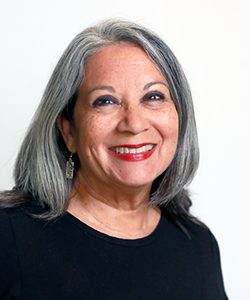
19 Feb First Person Plural
I was listening to an interview of Korean American author Cathy Park Hong about her book, Minor Feelings: An Asian American Reckoning. She spoke of a mythical We that does not really apply to all Asian Americans because it lumps together the Pacific Islanders and the Koreans, the Chinese, the Japanese, and the Vietnamese; and because it makes no distinction between the Americans of South Asian, Southeast Asian or Eastern Asian descent. And I thought, “Of course! It’s the same thing with the Hispanic population in the U.S.” Hispanics in the U.S. include people from Central and South America plus the Spanish-speaking Caribbean. And we are certainly not all the same, not in the ethnic roots, the cultural traditions, the range of skin colors, and even when we all speak the same language, it does not sound the same everywhere.
I remember spending a good part of my early years trying to answer the ever-present existential question: who am I? I know that, for me, being a girl was a central part of that identity because there were so many things I could not do just because I was girl. My life was constrained by that part of my identity. On the other hand, I was really good at things like drawing, and writing poems. Those things made me happy so I thought, “when I grow up I want to be a poet and an artist.” Becoming an interpreter or a translator was not something I ever considered as a possible life path, as something that could be as integral to my identity as being female. And yet, here I am, three quarters of my life defining myself as an interpreter and translator and feeling as happy being that as I felt when I was drawing or writing poems in my teenage years.
Defining the Self is no easy task. Nor is it easy to decide who gets included in the plurality of the Self we have come to be. Who thinks the way I do? Who feels the way I do? Who shares my goals in life? My expectations? Who do I want to include in my first person plural? Well, I got lucky when I first encountered CITA—now NAJIT—and a group of other people eager to learn, to grow, to contribute to this new profession being built from the ground up in this country, people like me. This was my first clear sense of what my first person plural was going to look like, my very own We.
Different yet bound by a common purpose and commitment
That We I have come to treasure includes people of all shapes and sizes, from countries all over the world, of all ages, genders, colors and religions. That particular We is not one imposed on me by outsiders, by “others” who may see me quite differently from the way I see myself in the context of my professional identity. There are Others who may see me—and perhaps all of us—as necessary evils or nuisances to be momentarily tolerated. Sometimes, those Others can have a negative impact on our self image, our collective identity, our cohesiveness as integral parts of this totality we call professional interpreters and translators. And we certainly cannot allow that.
professional identity. There are Others who may see me—and perhaps all of us—as necessary evils or nuisances to be momentarily tolerated. Sometimes, those Others can have a negative impact on our self image, our collective identity, our cohesiveness as integral parts of this totality we call professional interpreters and translators. And we certainly cannot allow that.
Together we have gone through a journey of introspection and have embarked in a deliberate expansion of the skills and knowledge that define us. Together we have acquired the self-awareness of being experts in our chosen field. We cannot renounce the privilege of delineating the boundaries of our identity so others, outside of our profession, do it for us.
Now that we have matured as a profession, we must stand strong and affirm our collective identity so those who are on the outside—lawyers, judges, court personnel, litigants, all those Others who are not part of our We—can see clearly that the field has been occupied and no one but us can define who we are, what we do, and how we do it. Of course, having matured does not mean we have left our growing pains behind. We still have to deal with sibling rivalries and maybe even a few schoolyard bullies. But all in all, I can say we have come very far from the days when none of us knew what it really meant to be a professional interpreter in a courtroom, or to be a legal translator whose finished product ended up as evidence in court.
So let’s not call what we do an industry, let’s call it a profession. Let’s not call ourselves freelancers, let’s call ourselves independent service providers or consultants or contractors. Let’s start setting our fees for services rendered, rather than rates per hour, or word, or page or half-day, which make us sound like commodities instead of highly qualified experts. Let’s be very aware of the name we give to every single thing we do, and every single thing that defines us.
We have answered the question: who are we? We have taken ownership the Self and the boundaries of what defines us as professional judiciary interpreters and legal translators. It is up to us, now, to defend and protect and assert the We that is our choice to be.

Janis Palma has been a federally certified English<>Spanish judiciary interpreter since 1981. Her experience includes conference work in the private sector and seminar interpreting for the U.S. State Department. She has been a consultant for various higher education institutions, professional associations, and government agencies on judiciary interpreting and translating issues. She worked as an independent contractor for over 20 years in federal, state and immigration courts around the U.S. before taking a full-time job. Janis joined the U.S. District Courts in Puerto Rico as a staff interpreter in April 2002 and retired in 2017. She now lives in San Antonio, Texas, embracing the joys of being a grandmother. She also enjoys volunteering for her professional associations, has been on the SSTI and TAJIT Boards, and is currently on the NAJIT Board of Directors. Contact: jpalma@najit.org
Read other posts by Janis Palma.

Great article Janice. I remember hen, many moons ago, we worked together.
May you stay safe. Blessings,
Many moons, indeed, Vicente. But I will never forget! Thank you.
Well said! It’s good to be reminded of how we should see ourselves and behave with clients (as professionals who have highly specialized skills to offer, and can set our own fees and conditions).
You very thoughtfully connected some dots for me. Thank you!
You are very welcome, Daniel!
Excellent article! Thank you for this, Janis.
Thank you, Sara.
Fantastic article. I fully recognize the “We” and the “Others”, the sibling rivalries and the bullying. It all coexists. In this world, or perhaps I should say, in this day and age, when everything is regarded as a commodity, it is important to make sure we know who “we” are and to convey that to “others”, some of whom may be more receptive than others.
Excellence in what we do is the name of the game, and that includes striving in being ourselves and ensure that permeates everything we do and how we behave.
Exactly, Josephine! Thank you for your comments.
I say, a very positive and cheerful take-off on the word we; so very well done, Ms. Palma. This is particularly intriguing to me as one who has studied Northeast Asia, and the Korean Peninsula in particular, for a lifetime. Early on when I was first introduced to the Korean Peninsula as a place to do duty as a soldier; I quickly became aware of the plural personal pronoun – we. The usage of we in the Korean language is most frequently used compared to its usage in English. Although I have not had the opportunity to read the article you refer to, written by Ms. Cathy Park Hong, I have a good idea of its content. Hyper rapid development of South Korea that took place comparatively shortly after the Korean War and extended over approximately one-and-a-half generations resulted in serious self and collective identification issues among South Koreans that largely can be attributed to how the Chosun Dynasty ended, a near generation of colonial rule by Japan,, and the demise of the Japanese Empire and birth of the Republic of Korea. Of course there are many more factors than that, but these are largely most significant. By the 1990s, international conferences were held in South Korea under themes related to identity. Even today among the Korean subcommunities throughout the United States, it is just fascinating to me to hear Koreans using we (우리 = uli) that distinguishes themselves as Koreans rather than we as Americans, be they citizens or not. It is so deft that during their conversations right here within the United States, they refer to other Americans as foreigners, not at all to be included in the we they are referring to in their discussions. That and more must be taken into account when testimony is given in a deposition and in Court, and that makes it all so very intriguing to me.
I apologize for bearing down on what I consider to be Ms. Park Hong’s struggle with the meaning of we, but certainly appreciate your expounding on we for sure. I do wholly agree that we should refer to ourselves as professionals in all manners and dimensions. That is fundamental to realize our true collective self.
Thank you so much, Clarence, for that very interesting take on Korean history and their journey towards a collective identity. I suspect you would enjoy Cathy Park Hong’s essays very much.
Great article, Janis! Thank you for sharing. Loved the choice of words: profession vs. industry, contractors vs. freelancers and fees for services vs. rates. Great reminder!
Thank you, Carmen. Every step towards self-awareness helps. I am very happy to contribute my little “grain of sand” towards that.
Useful post Thanks for sharing it that’s truly valuable knowledge about similar topic. Amazing. Have a more successful day. Amazing write-up always finds something interesting.
Janice – Beautiful! Thank you for putting it so well who we are.